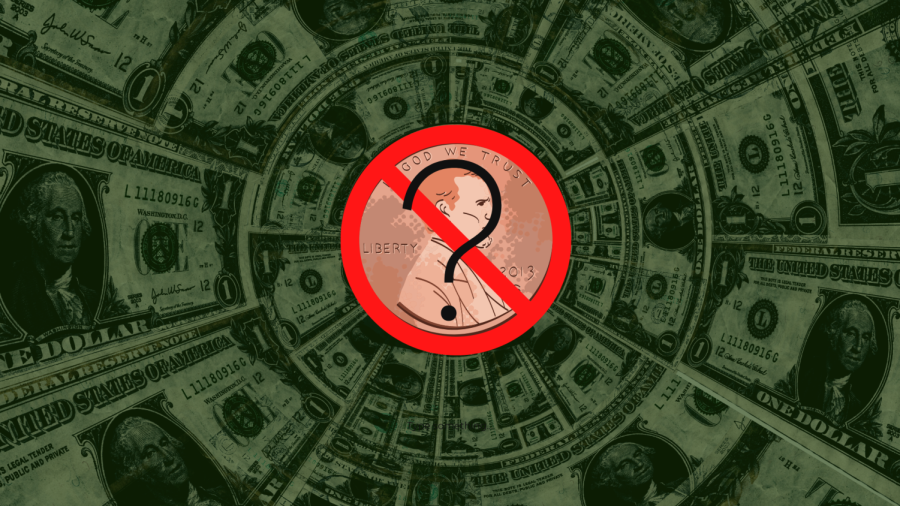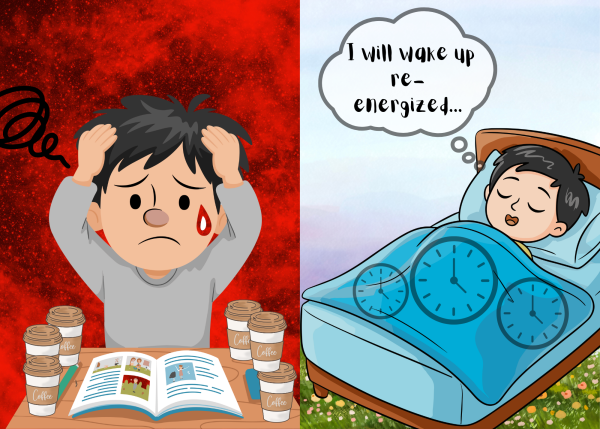Putting my “two cents” in: Why America should stop making pennies
As the world continues expanding on the possibilities and conveniences of using virtual money like online credits, Apple Pay, credit cards and money from services like PayPal, people begin to question the importance of coins and change. While change can still be important, some people advocate for economic change. A penny for my thoughts? I think the US should stop making the penny.
While I believe that the penny should still count as legal tender and continue circulating as a piece of American currency, I still think that the penny should be removed. Other similar countries have stopped making one cent coins, including Canada, New Zealand, Australia, The Netherlands and even Finland and Norway, according to Business Insider, with Canada having not distributed a single penny for almost ten years. Canada’s main reasons for this align with the same reasons why I believe America should do the same: manufacturing costs compared to face value of the penny ($0.01) and handling costs.
It’s been estimated that the US penny costs over twice as much to make compared to what it’s worth due to the rising prices of copper and zinc. With the US having made nearly 15 billion pennies in 2021, that means it cost 315 million dollars (or 31,500,000,000 pennies) to make those pennies.
Another important thing to note is the rise in popularity of virtual currencies. According to a study from logicaresearch.com, over half of the US population (58%) report currently using PayPal. Not only that, but Americans keep more money in their PayPal accounts than they do in their wallets. In another study done by logicaresearch.com. The average American keeps about $196 in their wallet and $485 in their PayPal account at an almost 2.5:1 ratio.
When applying these circumstances to the average American, it’s important to remember who or rather what accepts pennies in a person’s everyday life. While the average cashier, whether it be a person or machine, may accept the copper coin, most machines won’t take them. Laundry machines in laundromats don’t take them, and neither do parking meters, toll booths or vending machines, including the ones here at Niles North. Interestingly enough, those machines, along with many other vending machines around the world, accept Apple Pay, a virtual currency, as a form of payment.
One last thing: removing a coin with a virtually worthless face value (compared to its manufacturing costs) is something that has already been done in the United States before. The half cent coin is the smallest coin (in value) to ever be minted and considered legal tender in the US, being minted for only 64 years. Its production was discontinued in 1857 due to the rising prices of copper, making it too expensive to continue making the half cent.
At the Jewel-Osco on Skokie Blvd., white bread, the cheapest bread in stock on jewelosco.com, costs about $4.59/kg. Meanwhile, in the 1850’s, hard bread in Texas was only $0.22/kg, meaning that the half cent in the 1850’s had more power back then than the dime has today. While it may be too much to get rid of the Roosevelt dimes and Jefferson nickels, it would be good to start with the Lincoln penny. And while it may seem degrading and unpatriotic to get rid of the penny with what it represents, it’s important to remember the countless other things that honor Lincoln’s legacy, including the $5 bill, which shouldn’t be going anywhere any time soon.
With how expensive, unusable and continually more worthless and useless pennies are, it’s safe to say that it would be a smart idea to get rid of them, but the idea does not come without debate, questioning and possible consequences.
There is fear of inflation, and while people and banks like the UK central bank say this action would have “no significant impact” on prices, people need to understand if this action is beneficial for the modern US, not the old US or modern foreign countries. However, as the years go by with how many billions of pennies we make each year, we continue to lose more and more money as time goes on, so we might as well stop now before things get worse.

James "Jimmy" Ryan Prizant is a senior at Niles North and the first lead copy editor for North Star News. In his free time he enjoys bowling, listening...







